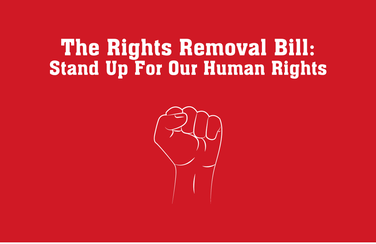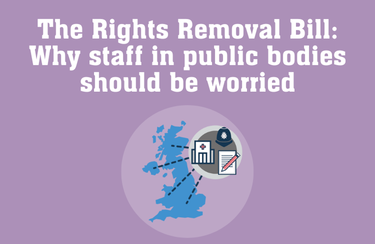For many disadvantaged groups, including children, young people and those in need of care and support for a wide range of reasons, issues such as limited access to court review, removal of the public sector proactive duties and the lack of consideration of these rights and freedoms, is likely to have a significant negative impact.
The wording of the Articles in Schedule 1 of the Bill remains the same; however how they are applied, who by and against what threshold is set to change, and this has a number of wider consequences that will impact on those least able to stand up for their own rights within our communities and service systems. There are numerous areas of concern levelled at this Bill from many quarters, but the key areas of concern for health and social care / public service delivery include:
The government is currently in process of consulting or implementing four key legislation areas that the replacement of the Human Rights Act has the potential to fundamentally change, including –
The title coined by those lobbying against the current proposals of the ‘Removal of Rights’ bill is an accurate description for many of the most vulnerable in our communities. Whilst the detail of the Articles set out in Schedule 1 have not fundamentally changed, the detail of the Bill in which they are contained has wide-reaching impact in relation to the application of these rights across a variety of settings, including areas such as health and social care, minority rights and the boundaries in which our public bodies are required to take account of individuals rights and wishes. It also appears that this government has sought to minimise awareness of what the ‘Bill of Rights’ will mean in practice beyond the scope of immigration, courts, and criminal justice procedures. The scrutiny of this bill and its spirit will be an essential part of the legislative process and must be robust if we are to protect against the erosion of civil rights for groups who are unable to articulate or otherwise effectively represent their own interests, views, and rights. Daisy Long, 01/09/2022 |
AuthorSNews, views and rambling rants from the DCC-i Crew... Archives
September 2022
Categories
All
|
|
DCC Interactive Ltd
Registered Office: 22 St John St, Newport Pagnell. MK16 8HJ Registered in England & Wales, Registration No: 13075266 Contact: [email protected] Registered with the Information Commissioners Officer, Registration No: ZA839281.
|
Our Accreditations: |




 RSS Feed
RSS Feed





